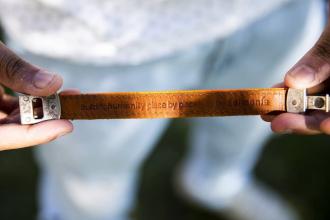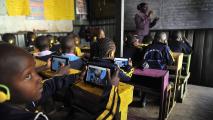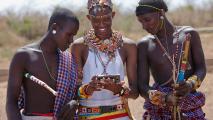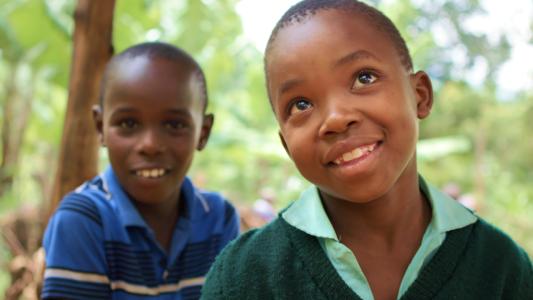Hordes of bright orange lifejackets are strewn across the rocky beaches of the Greek island of Lesbos. Discarded after a perilous journey at sea, they exemplify the risk that refugees are willing to take in search of a better life.
Men, women, and children arrive at Lesbos by the hundreds — sometimes, as many as 500 in one day. Many come across the Mediterranean, where war or other factors threaten a safe way of life.
Now, a Minnesota startup, called Epimonia, is transforming these discarded lifejackets into symbolic jewelry to draw attention to the global refugee crisis. According to the UN High Commissioner for Refugees (UNHCR), there are currently 70 million people forcibly displaced from their homes, including 26 million refugees.
Maalim, a Somali-American, was born in Dadaab, one of the largest refugee camps in the world. Basic necessities like food and water were scarce.
Founded by a refugee, Epimonia also donates half its profits to organizations that help refugees with the challenges of transitioning to a new life.
“With the current political climate that was going on in our country, I wanted to shed a positive light on refugees,” Mohamad Maalim, the startup’s founder, says.
Maalim, a Somali-American, was born in Dadaab, one of the largest refugee camps in the world. Basic necessities like food and water were scarce. The opportunity to go to school was nonexistent. For Maalim and his family, that camp was their home until they resettled in Minnesota through a UN resettlement program. Two decades later, Maalim is the first in his family to finish school, attend college, and launch the business he dreamed of — the opportunities his parents sought for him and his five siblings.
But Maalim can’t forget his roots and the struggle that refugees face.
“Refugees are human beings, just like all of us. They all want opportunities to provide for their families, and that’s what the bracelets stand for.”
Mohamad Maalim
“To be a refugee, it feels hard. It feels tough when you don’t feel like you belong there. When you grow up as a refugee, whether it’s a new country, the U.S. or outside of the U.S., it’s difficult because they have to start their whole life all over again. And that’s the hardest part of being a refugee,” he says.
Maalim proposed the fashion company in a college social business competition. His first product was the Embracelet, a wristband that’s made out of lifejackets. According to Maalim, the bracelet is a “great conversation starter.”
“When you wear this bracelet, you basically symbolize that you stand for refugees. Refugees are human beings, just like all of us. They all want opportunities to provide for their families, and that’s what the bracelets stand for,” he says.
Volunteers from Movement on the Ground, Epimonia’s partner organization, collect the lifejackets from the shores of Lesbos to send to HBI Textile, a Minnesota-based fashion factory. There, former refugee employees will cut, stitch, and finish the bracelets.
Maalim donates 50% of the profits to support refugee education and assimilation in the U.S., providing scholarships to high school students and helping pay for citizenship application fees. To Maalim, these efforts are investments that will help the refugees become employed and independent.
“The way to break xenophobic stereotypes is by just having a conversation. Being open-minded and just meeting new people that look different than you.”
Mohamad Maalim
Eventually, he hopes to expand to a full clothing line that also incorporates blue and red life jackets. To help get there, Maalim recently won a spot on the 2019 Fellowship cohort, where he will attend industry conferences, receive business mentorship, and get the opportunity to pitch Epimonia to investors.
Despite working on a topic fraught with controversy in today’s political climate, Maalim says he remains optimistic.
Maalim hopes to expand to a full clothing line that also incorporates blue and red life jackets.
“I’m optimistic because, at the end of the day, positivity is always ruling in life,” he says. “The way to break xenophobic stereotypes is by just having a conversation. Being open-minded and just meeting new people that look different than you.”
For more about the social entrepreneurs who are exploring bold new solutions to big social problems, join us on Facebook on our page, Catalysts.






